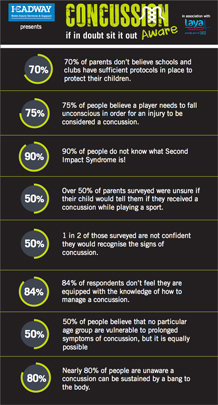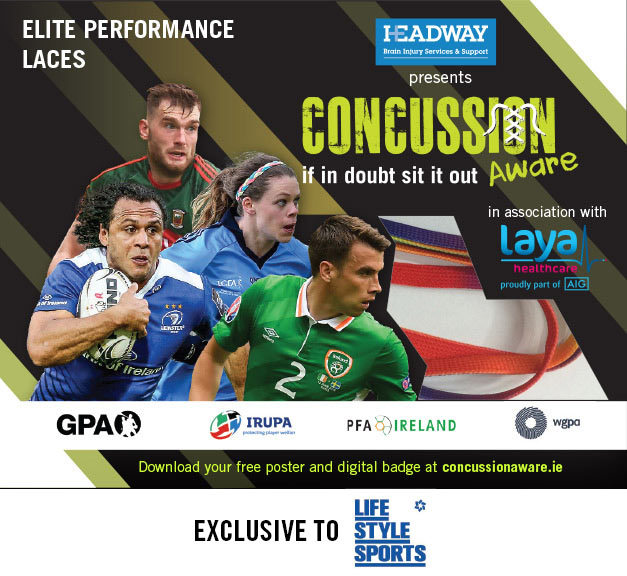Headway and laya healthcare commissioned Amarach Research to carry out a national survey on awareness of concussion :
- Half of respondents thought they would recognise the signs of concussion but 1 in 5 didn’t know for how long or if someone needed to fall unconscious in order to sustain a concussion.
- Respondents felt coaches and referees have the primary responsibility of care if a player is suspected of having a concussion.
- Under half (48%) of parents thought their child would tell them if they suspected they had a concussion and among these 14% are either unsure or think their child would not tell if it meant they would miss a match.
- The vast majority of parents would bring their child to the doctor if they suspected they might have a concussion.
- Just 16% of respondents were confident that they could manage a concussion injury and just 28% think their local school or club had a sufficient protocol to manage such an injury.
- 1 in 10 were aware of Second Impact Syndrome, while the majority highlight memory loss and confusion as long term consequences of concussion.
- Rugby was the top mention for sports where concussion is possible, other sports mentioned by participants included boxing, UFC, MMA and horse related sports.
- The majority of respondents (72%) say concussion is sustained from getting a bang to the head alone, while 22% say it is caused by a bang to either the head or the body.
- 1 in 5 respondents do not know the recovery time for a concussive injury, but almost two thirds of participants say they have become more aware of the issue of concussion in the past few years.
- Nearly two thirds of parents say that risk of injury influences the sports they like their children to play.
- 14% of respondents have suffered a concussion while playing sport and the most common sport where a concussion was sustained was soccer.
- Awareness of concussion in sports is growing, people are acknowledging the potential dangers of this injury and there is concern among parents about the sports their children are playing.
- However despite growing awareness there is still a good deal of confusion and uncertainty around the specifics of the injury and a need for better protocols and knowledge for managing it.
- It was promising that just 5% of respondents said they would play on unless told otherwise, if they felt dizzy or unbalanced following a blow to the head or body while playing sport.





